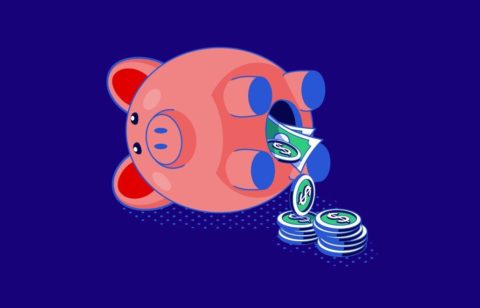If you are looking to pay off your debt, it is important to evaluate options like debt consolidation. Top Ten Reviews has laid out a list of some of the most reputable companies on the market. By taking advantage of these services, it can be easier to financially get back on your feet.
But what happens if you are undergoing a bankruptcy procedure while you already have a debt consolidation loan? Whether you are dealing with Chapter 7 or Chapter 13, you should understand exactly how the loan will be handled. But first, let’s cover the basics.
What is a debt consolidation loan?
Debt consolidation combines your credit card and other debt into a new loan with one monthly payment. The consolidated monthly payment is usually lower because you pay a lower interest rate. This enables you to pay off the debt quicker than if you made minimum payments on multiple outstanding balances.
Many people use debt consolidation to pay down balances that have been dragging them down. It provides the opportunity to make sense of your debt, organize it, and pay it off. Another advantage is that you will find it easier to pay back one company as opposed to dealing with multiple creditors.
People Also Read
What are the advantages of a debt consolidation loan?
This type of loan is practical and helpful because it can help you eliminate the differentiation in your debt. Dealing with 15 debt-related accounts with varying interest rates, creditors, and due dates is enough to drive anyone crazy!
How can I get a debt consolidation loan?
A good company should be able to help you whether you are dealing with debt related to medical bills, credit cards, and any other types of unsecured debt. Once you have gone through a list of debt consolidation companies, reach out to a few and ask for an estimate. This can give you an idea of how much you can get pre-approved for and at what interest rate.
In most situations, the rate you are charged will depend on your credit score. While debt consolidation loan companies will approve people with fair or poor credit, you will pay more in interest. You will qualify for the best interest rates if your credit score is over 670. The company will then determine how much you can afford each month and set up your loan terms accordingly.
Read on to learn about bankruptcy and the best ways to navigate it.
What is bankruptcy?
Bankruptcy is a legal filing that allows you to obtain debt forgiveness and build your credit back up. You can use it to increase your financial standing and get a fresh start. But it does stay on your record for seven to 10 years, so be sure this is the best route to take before you proceed. This is not legal advice. Consider consulting an attorney if you want to know more. Keep in mind that bankruptcy should only be considered as a last resort.
The differences between Chapter 7 and Chapter 13 bankruptcy
Both Chapter 7 and Chapter 13 bankruptcy serve the same purpose—they allow you to discharge your debt in a legal manner. With Chapter 7 bankruptcy, you will receive debt forgiveness that may involve the liquidation of assets. Once you file, creditors can no longer hound you for payment.
Chapter 13 bankruptcy is a bit different in that it consists of a repayment plan which usually lasts about five years. Be sure to consider your options carefully. Learn what is required before you decide which type of bankruptcy filing might be best for your situation.
Who can help me navigate bankruptcy?
Since this option has repercussions, a credit counselor could steer you in the right direction. Depending on where you live, credit counseling might be mandated from a legal perspective.
You might also want to consider legal assistance. Bankruptcy attorneys can protect you from making mistakes that could live on your credit history. They can guide you throughout the process, go over your application with a fine-toothed comb and help you deal with your debt consolidation loan as it pertains to your bankruptcy filing.
Understanding how debt consolidation loans are handled throughout the bankruptcy process
If you have a debt consolidation loan while filing for bankruptcy, it will be treated as unsecured debt. This means you can have the debt discharged or forgiven. For this reason, filing Chapter 7 bankruptcy might be your best option if the majority of your debt is in the form of a debt consolidation loan.
Again, it is highly recommended that you obtain the help of a bankruptcy lawyer who understands these processes. Without one, you could run the risk of making legal mistakes or having your debt considered “bad faith” if you do not handle it correctly. Working with an attorney can also help ensure you are treated fairly in bankruptcy court, while also having your debt consolidation loan discharged.
You may have nothing to worry about if you reach out to a reputable company and later decide to file for bankruptcy. You will likely be in good hands and may be able to receive help from both debt relief professionals and bankruptcy professionals. Understanding what is expected of you will make the process easier.
Remember that you are not alone—many people find themselves in this sticky financial situation. In fact, there have been approximately 383,810 bankruptcy filings in the U.S. as of 2022.









